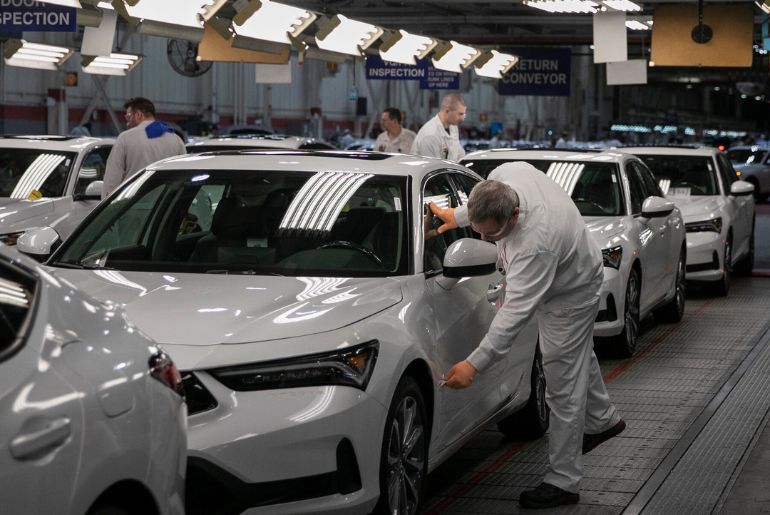Amid the uncertainties surrounding U.S. President Mr Donald Trump’s tariffs, Japan’s Honda Motor (7267.T) said that it will halt its plan to establish an EV supply chain in Canada and predicted a 59% decline in profits in the current fiscal year.
In the year ending March 31, 2026, Japan’s second-largest carmaker anticipates operating profits of 500 billion yen ($3.38 billion), up from 1.21 trillion yen in the previous year.
Honda’s prediction is the most recent indication of the challenges automakers are facing as a result of Trump’s tariffs on imported vehicles, which coincide with the industry’s decline due to the emergence of Chinese EV manufacturers.
Additionally, Honda stated that it will postpone for “approximately two years” its April 2024 intention to establish an EV supply chain in Ontario, Canada. It stated that the current downturn in EV demand was the reason for that decision.
Although the two still have a technical cooperation agreement, Honda and Nissan’s merger talks ended earlier this year. These partnerships are thought to be more and more crucial for automakers to combat the challenge posed by fast-moving electric vehicle businesses, especially in China.
At a press conference, Honda CEO Toshihiro Mibe stated, “We will definitely look for new directions of growth through strategic partnerships, even though the automotive industry is in a very difficult situation.” He claimed that since negotiations were cancelled in February, there has been no progress on the potential partnership with Nissan.
Honda anticipates that tariffs in several nations will reduce its operating profit by 650 billion yen in fiscal 2026, with the impact on imports of about 550,000 completed automobiles accounting for 300 billion yen of that total. According to presentation materials, the company estimated that by working to lessen the impact of the tariffs, it would be able to offset almost 200 billion yen of them.

